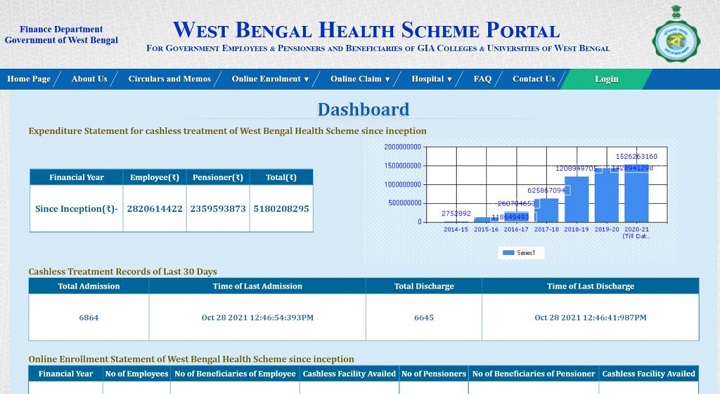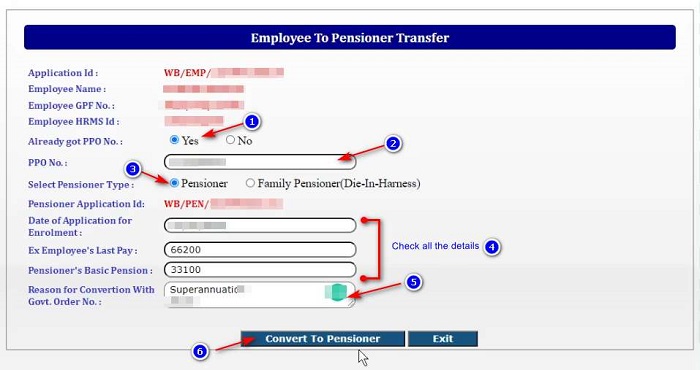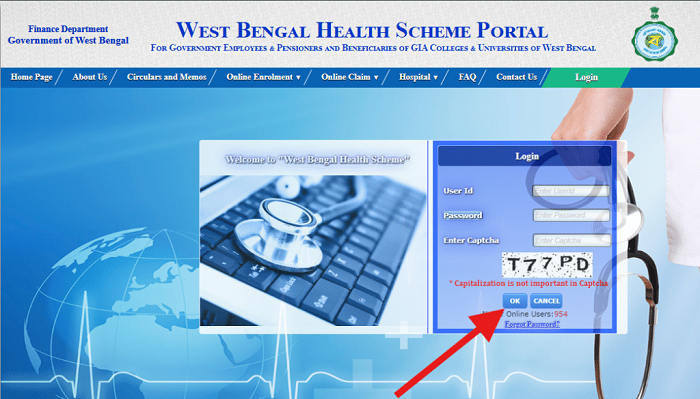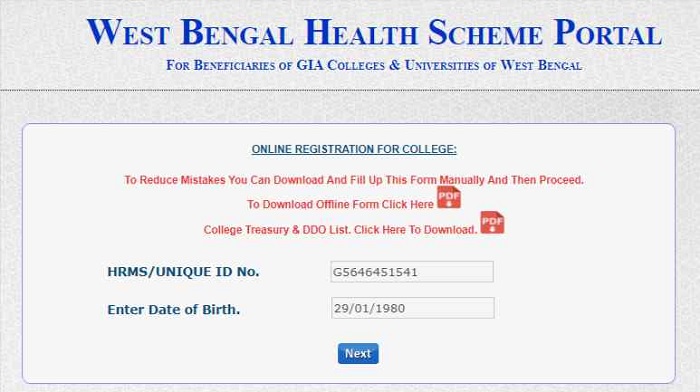
The West Bengal Health Scheme
The West Bengal Health Scheme was launched with the primary aim of ensuring that all residents of the state, especially those from economically weaker sections, have access to quality healthcare services. The initiative is part of a broader effort to improve the overall health status of the population and to reduce the financial burden of healthcare costs on families.
Objectives of the West Bengal Health Scheme
The scheme has several key objectives, including:
Universal Healthcare Access
The WBHS aims to provide universal access to healthcare services for all residents of West Bengal. By eliminating financial barriers, the government intends to ensure that every individual can receive necessary medical care without the fear of crippling expenses.
Financial Protection
One of the significant aspects of the scheme is to offer financial protection against high medical costs. The initiative is designed to prevent families from incurring debts or facing financial hardship due to healthcare expenses.
Improved Healthcare Infrastructure
The West Bengal Health Scheme also focuses on enhancing the healthcare infrastructure in the state. This includes upgrading existing hospitals, establishing new healthcare facilities, and ensuring that medical equipment and technology are up to date.
Focus on Preventive Healthcare
In addition to providing treatment, the scheme emphasizes preventive healthcare. This involves promoting awareness about health issues, encouraging regular health check-ups, and providing vaccinations to prevent diseases.
Collaboration with Private Sector
The government recognizes the role of the private sector in healthcare delivery. Therefore, the WBHS aims to foster partnerships with private hospitals and clinics to expand the reach and quality of healthcare services.
Key Features of the West Bengal Health Scheme
The West Bengal Health Scheme is characterized by several unique features that set it apart from other healthcare initiatives:
Cashless Treatment
One of the most notable features of the WBHS is its cashless treatment facility. Beneficiaries can receive medical services without having to pay upfront, thus alleviating the financial burden associated with healthcare.
Wide Coverage
The scheme covers a broad range of medical services, including outpatient consultations, inpatient treatments, diagnostic tests, and surgical procedures. This comprehensive coverage ensures that individuals receive all necessary healthcare without worrying about costs.
Inclusion of All Citizens
The WBHS is designed to include all citizens of West Bengal, regardless of their economic status. This inclusivity is crucial in ensuring that vulnerable populations, including marginalized communities, can access healthcare services.
Digital Implementation
To streamline the process and enhance transparency, the scheme leverages technology. Beneficiaries can register online, access information about available services, and even track their claims through a dedicated digital platform.
Also Read: Novi Digital Entertainment Private Ltd.
Focus on Maternal and Child Health
The scheme places particular emphasis on maternal and child health, providing special benefits for pregnant women, infants, and children. This focus is vital for reducing maternal and infant mortality rates in the state.
Eligibility Criteria for Beneficiaries
To avail of the benefits under the West Bengal Health Scheme, individuals must meet specific eligibility criteria:
Resident of West Bengal
Only residents of West Bengal can apply for the scheme. Proof of residency, such as a voter ID or Aadhaar card, may be required during the registration process.
Income Criteria
While the scheme aims to include all citizens, priority is often given to economically weaker sections. Individuals or families with lower annual income levels may receive preferential treatment in accessing benefits.
Enrollment Process
To enroll in the scheme, beneficiaries need to complete the registration process, which can typically be done online. Providing necessary documentation, such as identity proof and income certificates, is essential for verification.
Implementation of the West Bengal Health Scheme
Government Role
The West Bengal government plays a pivotal role in implementing the scheme. This includes formulating policies, allocating budgets, and overseeing healthcare facilities to ensure they comply with the scheme’s objectives.
Partnerships with Private Hospitals
To enhance service delivery, the government has partnered with numerous private hospitals. These collaborations help expand the reach of healthcare services, allowing beneficiaries to access quality care without incurring high costs.
Awareness Campaigns
Awareness campaigns are conducted to educate citizens about the scheme and its benefits. These initiatives are crucial in ensuring that eligible individuals are informed about the services available to them.
Monitoring and Evaluation
Regular monitoring and evaluation processes are essential to assess the effectiveness of the scheme. Feedback from beneficiaries helps in making necessary adjustments to improve service delivery and address any challenges that may arise.
Impact of the West Bengal Health Scheme
Improved Health Outcomes
Since the launch of the WBHS, there has been a noticeable improvement in health outcomes across the state. Reduced mortality rates, increased access to healthcare services, and better maternal and child health indicators are some of the positive changes observed.
Financial Relief for Families
The cashless treatment feature has significantly reduced the financial strain on families, allowing them to seek necessary medical care without the fear of incurring debt.
Enhanced Healthcare Infrastructure
The scheme has contributed to the strengthening of healthcare infrastructure in West Bengal. The establishment of new healthcare facilities and the upgrading of existing ones have resulted in improved service delivery.
Increased Awareness of Health Issues
Awareness campaigns have played a vital role in educating the public about health issues and the importance of preventive care. As a result, more individuals are seeking regular health check-ups and vaccinations.
Challenges and Areas for Improvement
While the West Bengal Health Scheme has made significant strides, it is not without its challenges:
Accessibility in Rural Areas
Despite efforts to improve healthcare access, many rural areas still face challenges in accessing quality healthcare services. Further investments in infrastructure and transportation are needed to reach remote populations.
Need for Continuous Funding
Sustaining the scheme requires continuous funding and resources. The government must ensure that sufficient budgets are allocated to maintain and expand healthcare services.
Awareness and Participation
While awareness campaigns are underway, more efforts are needed to ensure that all eligible citizens are informed about the scheme. Increased participation from the community is crucial for the scheme’s success.
Future Directions for the West Bengal Health Scheme
To enhance the effectiveness and reach of the West Bengal Health Scheme, the government can consider several future directions:
Strengthening Primary Healthcare
Focusing on primary healthcare services is essential for preventing diseases and promoting overall health. By investing in primary healthcare infrastructure, the government can ensure early detection and management of health issues.
Integration of Technology
Leveraging technology for better service delivery, such as telemedicine and online consultations, can help overcome geographical barriers and improve access to healthcare services.
Engaging Community Health Workers
Community health workers play a crucial role in promoting health awareness and facilitating access to healthcare services. Training and deploying more community health workers can enhance the scheme’s outreach.
Regular Review and Adaptation
Conducting regular reviews of the scheme’s performance and adapting to changing health needs is vital. The government should remain flexible in its approach and be willing to make necessary adjustments based on feedback and evaluation results.
The West Bengal Health Scheme represents a significant step towards achieving universal healthcare access in the state. With its focus on financial protection, improved infrastructure, and preventive care, the initiative has made a positive impact on the health of its residents. However, continuous efforts are required to address existing challenges and ensure that all citizens can benefit from quality healthcare services. By prioritizing health and well-being, West Bengal is paving the way for a healthier future for its population.



